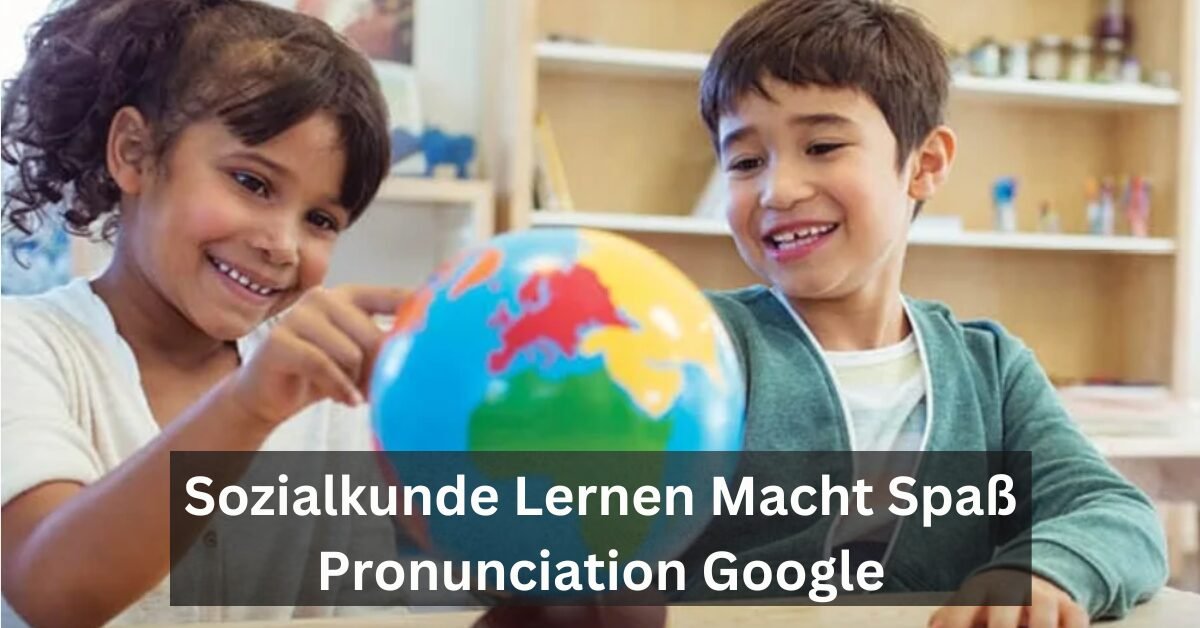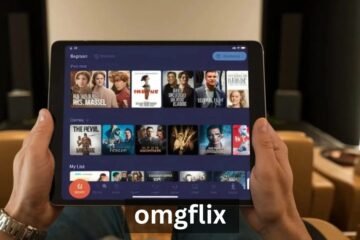Learning a new language or subject can often seem like a daunting task. However, when you approach it with the right mindset and tools, it can become a fun and rewarding experience. If you’re a German language learner or someone interested in diving into the subject of Sozialkunde Lernen Macht Spaß Pronunciation Google (social studies in German), you’re in the right place! This guide will show you how learning social studies in German can be enjoyable—emphasizing the correct pronunciation of key terms and providing tips and tools to enhance your learning journey.
When most people think of social studies, they might imagine long lectures and endless notes. However, Sozialkunde Lernen Macht Spaß Pronunciation Google in Germany takes a dynamic and engaging approach. This subject, which includes topics like politics, law, economics, and history, is not just about memorization—it’s about understanding the world around you. The way Sozialkunde Lernen Macht Spaß Pronunciation Google is taught in Germany promotes active participation and critical thinking, two essential aspects of enjoying your learning process.
The engaging nature of Sozialkunde Lernen Macht Spaß Pronunciation Google makes it an enjoyable subject, even for non-native speakers learning German. While the content might seem challenging at first, understanding the real-world implications of politics, law, and economics can captivate your interest and make learning fun. For language learners, combining Sozialkunde Lernen Macht Spaß Pronunciation Google with your German studies allows you to immerse yourself in both the language and the social structures that govern societies. Engaging with such a subject will undoubtedly make the process of learning German more exciting and purposeful.
One of the biggest challenges for learners of any language is mastering pronunciation. In German, the pronunciation of words like Sozialkunde Lernen Macht Spaß Pronunciation Google can be tricky for non-native speakers, especially when trying to make your speech flow naturally. Pronunciation errors can lead to misunderstandings or create a barrier to effective communication. That’s why learning the correct pronunciation is crucial, not just for clarity, but for building confidence as a speaker.
In this article, we’ll guide you through the correct pronunciation of Sozialkunde Lernen Macht Spaß Pronunciation Google and introduce you to useful resources like Google’s pronunciation features to help you refine your skills. Having the right tools can make all the difference in sounding like a natural German speaker. With a focus on Aussprache von Sozialkunde Lernen Macht Spaß Pronunciation Google (pronunciation of Sozialkunde Lernen Macht Spaß Pronunciation Google), we will explore step-by-step breakdowns and offer pronunciation tips so that you can speak confidently.
This guide is structured to help you make the most of your learning experience. From understanding Sozialkunde Lernen Macht Spaß Pronunciation Google to mastering pronunciation with the help of tools like Google, we’ll cover everything you need to know. If you’re interested in how learning can be fun and how to speak German confidently, you’re about to embark on an exciting journey!
What is “Sozialkunde Lernen Macht Spaß Pronunciation Google”?

Before we dive into learning methods and pronunciation tips, let’s understand what Sozialkunde Lernen Macht Spaß Pronunciation Google really means.
Understanding the Term “Sozialkunde Lernen Macht Spaß Pronunciation Google” in the Context of German Education
Sozialkunde Lernen Macht Spaß Pronunciation Google is the German term for social studies. It encompasses subjects like politics, law, economics, and social issues. In German schools, it is typically taught as part of a broader curriculum aimed at helping students understand society and their roles within it. This subject is foundational in shaping well-informed, socially responsible individuals who can actively engage in their communities. Learning Sozialkunde Lernen Macht Spaß Pronunciation Google enables students to gain an understanding of the political and legal systems, as well as to analyze economic systems and societal trends that impact their daily lives.
The integration of Sozialkunde Lernen Macht Spaß Pronunciation Google into the German educational system shows how significant the subject is in shaping future citizens. Its focus is not only on academic content but also on the application of knowledge in real-life scenarios. As part of the curriculum, Sozialkunde Lernen Macht Spaß Pronunciation Google teaches students how to think critically, discuss global issues, and advocate for change in an informed manner. This subject is crucial in fostering an understanding of democracy, social justice, and the law in students.
The Role of Social Studies in German Curriculum
In the German educational system, Sozialkunde Lernen Macht Spaß Pronunciation Google plays a crucial role in shaping students’ understanding of political and societal structures. It helps students develop critical thinking skills as they explore concepts of democracy, human rights, and global economics. The curriculum is designed to encourage active participation and foster an understanding of the rights and responsibilities of citizens. With an emphasis on practical knowledge, Sozialkunde Lernen Macht Spaß Pronunciation Google also provides students with the tools necessary to engage in meaningful conversations about the world.
By studying Sozialkunde Lernen Macht Spaß Pronunciation Google, students in Germany are not just memorizing dates and facts; they are learning how to apply their knowledge in various contexts. Whether discussing current political events, understanding economic theories, or exploring historical conflicts, Sozialkunde Lernen Macht Spaß Pronunciation Google shapes how students interpret the world around them. For learners who want to combine language learning with real-world knowledge, Sozialkunde Lernen Macht Spaß Pronunciation Google offers a unique opportunity to grow in both areas simultaneously.
Key Concepts and Topics Covered in Sozialkunde Lernen Macht Spaß Pronunciation Google
Social studies in Germany, or Sozialkunde Lernen Macht Spaß Pronunciation Google, covers a wide range of topics. Some key areas include:
- Politics: Exploring the political systems, parties, and elections in Germany and beyond. This helps students understand the mechanics of democratic decision-making and government structures.
- Law: Understanding the legal system, rights, and responsibilities of citizens. Students gain an appreciation for how laws are made and enforced and how they affect everyday life.
- Economics: Examining basic economic principles, markets, and global trade. This section encourages students to think critically about how economics affects society on both a local and global scale.
- History: Learning about historical events that shaped modern society. The study of history allows students to understand the roots of current political and economic systems.
- Social Issues: Discussing contemporary societal challenges like inequality, climate change, and global conflicts. This part of Sozialkunde Lernen Macht Spaß Pronunciation Google makes the subject relevant and timely, connecting classroom learning to the issues that shape the world today.
Why Learning Social Studies Can Be Enjoyable (“Lernen Macht Spaß”)
When you think about education, what comes to mind? For many, learning may seem like a tedious task, but it doesn’t have to be! Let’s explore why Lernen macht Spaß (learning is fun), especially when it comes to Sozialkunde Lernen Macht Spaß Pronunciation Google.
Fun and Interactive Approaches to Learning Social Studies
To make learning social studies more engaging, consider integrating activities like group discussions, debates, and project-based learning. These methods allow students to actively participate, explore real-world issues, and practice their German language skills in a meaningful way. When students connect what they are learning to their daily lives, the subject becomes much more interesting.
For example, students could organize mock elections to understand the voting process, or conduct research projects on economic systems, giving them both practical knowledge and experience in applying their German language skills. These activities allow students to interact with the material, making learning more enjoyable and less about rote memorization. By engaging with the material in a hands-on way, students make deeper connections with the subject matter.
Engaging Methods for German Language Learners
For German learners, combining Sozialkunde Lernen Macht Spaß Pronunciation Google with language practice can make the learning process more enjoyable. Watching German documentaries, listening to podcasts on social issues, or reading German news articles can provide exposure to both the language and the topics covered in social studies. This immersive approach makes learning both relevant and fun. Language learners can also find joy in discussing current events and politics with others in German, creating opportunities for real-world conversation practice.
Integrating German-language media into your Sozialkunde Lernen Macht Spaß Pronunciation Google studies will not only help improve your language skills but also offer an authentic connection to the German-speaking world. This exposure allows you to understand how social studies concepts are discussed in German and to familiarize yourself with the vocabulary used in these contexts.
How the Enjoyment of Learning Translates to Language Mastery
When you enjoy learning, your motivation soars, and this can significantly enhance your language acquisition. For instance, if you find joy in discussing politics or economics in German, you’re more likely to retain vocabulary and improve your comprehension skills. Fun learning is effective learning, and mastering both Sozialkunde Lernen Macht Spaß Pronunciation Google and the German language can become an exciting goal to pursue.
By staying engaged and actively seeking out enjoyable ways to learn, you increase the likelihood of success in both subjects. Whether it’s through interactive lessons, media consumption, or group activities, making learning enjoyable turns studying into something you look forward to, rather than something you dread.
Pronunciation Guide for “Sozialkunde Lernen Macht Spaß Pronunciation Google”
One of the most essential aspects of learning any language is pronunciation. In German, mastering the pronunciation of words like Sozialkunde Lernen Macht Spaß Pronunciation Google is key to sounding natural and being understood. Here’s how you can correctly pronounce this term.
Step-by-Step Pronunciation Breakdown
The word Sozialkunde Lernen Macht Spaß Pronunciation Google can be broken down into three syllables:
- So-zi-al: The first part is pronounced like “zo-zee-ahl,” with a short “o” sound and a soft “z” sound.
- Kun: The second part is pronounced like “koon,” with the “u” sounding like the “oo” in “moon.”
- De: The final part is pronounced like “duh,” with a soft “e” at the end.
Phonetic Transcription of “Sozialkunde Lernen Macht Spaß Pronunciation Google”
In the International Phonetic Alphabet (IPA), Sozialkunde Lernen Macht Spaß Pronunciation Google would be transcribed as: [zoˈtsi̯alˌkʊndə]. This transcription gives you a clear representation of how each sound is made. By practicing these sounds, you can build confidence in your pronunciation and start sounding more like a native speaker.
Audio Resources and Tools to Help with Pronunciation
To perfect your pronunciation of Sozialkunde Lernen Macht Spaß Pronunciation Google, it’s essential to use audio resources that offer native pronunciations. You can find pronunciation guides on websites like Forvo, where native speakers pronounce words for you. These resources will allow you to listen to the correct pronunciation multiple times, helping you adjust your own speech. Google’s pronunciation feature also offers an excellent way to hear how words are spoken. Simply search for “Sozialkunde Lernen Macht Spaß Pronunciation Google pronunciation” on Google, and you’ll hear it spoken by a native speaker.
Additionally, many language learning apps, like Duolingo and Babbel, offer pronunciation exercises where you can practice speaking the words yourself. These apps typically use speech recognition technology to give you feedback on how accurate your pronunciation is.
The Role of Google in Pronunciation: Leveraging Google’s Features for Language Learning
Google’s features offer great support for learners who want to perfect their pronunciation. Here’s how you can make the most of them.
How to Use Google Search and Google Translate for Pronunciation Help
Google Search can be an effective tool for pronunciation. When you search for a word like “Sozialkunde Lernen Macht Spaß Pronunciation Google pronunciation,” you often see audio results from native speakers. This gives you the chance to hear the word spoken by a fluent German speaker.
Additionally, Google Translate can be a helpful tool for pronunciation. Although the voice isn’t always as natural as a native speaker, it gives you a general idea of how the word should sound. You can even hear the word repeated multiple times, which helps reinforce your learning.
Understanding Google’s Audio Pronunciation Features
Google Translate and Google Search often have built-in audio features that play native pronunciation. By repeatedly listening to these audio clips, you’ll get a feel for the rhythm, tone, and cadence of the German language. This is especially beneficial for words like Sozialkunde Lernen Macht Spaß Pronunciation Google, which may seem intimidating at first but become easier once you’ve heard the proper pronunciation several times.
Exploring terms like Lernen macht Spaß (learning is fun) encourages a positive mindset when studying, reminding you that the learning process doesn’t have to be tedious. Similarly, understanding Aussprache von Sozialkunde Lernen Macht Spaß Pronunciation Google enables you to sound confident and clear when discussing the subject in German.
LSI Keywords That Enhance Your Knowledge of Social Studies in German
Incorporating related LSI keywords such as Phonetik (phonetics), Lautschrift (phonetic transcription), and Sprachpraxis (language practice) can enhance your understanding of both language and Sozialkunde Lernen Macht Spaß Pronunciation Google. By practicing these terms in context, you’ll start connecting your language studies to the real-world content of Sozialkunde Lernen Macht Spaß Pronunciation Google, making the learning process more relevant.
Language Learning Apps and Tools for Mastering German Pronunciation
Using modern language learning apps and tools is one of the best ways to improve your pronunciation and overall German skills.
Recommended Apps: Duolingo, Babbel, Memrise, and More
Apps like Duolingo, Babbel, Memrise, and Anki are incredibly helpful for language learners. These apps offer structured lessons and pronunciation practice, often featuring speech recognition technology that provides feedback on your accuracy. Duolingo and Babbel, for example, focus on building vocabulary and sentence structure, while Memrise offers immersive learning through spaced repetition. Anki, known for its flashcard method, can be particularly useful for memorizing new vocabulary, including social studies terms.
Features to Look for in Language Apps That Help with Pronunciation
When choosing a language learning app, look for features such as:
- Speech recognition: Helps you practice speaking and receive feedback on your pronunciation.
- Audio recordings by native speakers: Listening to native pronunciations is key for mastering authentic German speech.
- Interactive lessons: Engaging lessons that combine vocabulary building with pronunciation practice.
These features ensure that you’re not only learning new words but also perfecting the pronunciation and using them in the right context.
How to Practice with These Apps to Get the Best Results
- Set daily goals: Consistency is key when learning a new language. Set aside time each day to practice speaking and listening using your chosen apps.
- Engage in conversations: Many apps have features that allow you to chat with other learners or even practice with bots. Use these opportunities to practice speaking in German.
- Track your progress: Monitoring your improvement over time will keep you motivated and show you where you need to focus more effort.
Effective Methods for Learning German Pronunciation
Mastering pronunciation is an ongoing process, and practicing the correct sounds is crucial for sounding like a fluent speaker.
Phonetic Exercises to Perfect Your Pronunciation
Engaging in regular Ausspracheübungen (pronunciation exercises) is essential. These exercises can range from repeating challenging words and phrases to focusing on specific sounds, like the German ü or ch sounds, which may be unfamiliar to learners. Using phonetic transcription and online resources, you can practice these sounds until they become second nature.
Common Pronunciation Pitfalls in German and How to Avoid Them
Some common pronunciation challenges in German include mispronouncing vowel sounds, such as ei and ie, or stressing the wrong syllables. For example, in Sozialkunde Lernen Macht Spaß Pronunciation Google, the stress is on the second syllable: So-ZI-al-KUN-de. Another common error is mispronouncing the ch sound, which is found in many German words like nicht (not). Practicing with native speaker recordings can help you avoid these pitfalls.
The Importance of Listening and Imitation in Language Learning
Listening to native speakers and imitating their pronunciation is crucial for mastering any language. Whether you’re using Google’s pronunciation feature, listening to German podcasts, or practicing with language apps, hearing and mimicking the correct sounds will help you sound more natural.
Integrating Social Studies and German Learning: Best Practices
By combining social studies and German learning, you create a dynamic and multifaceted educational experience.
How to Combine Social Studies and Language Learning for a More Engaging Experience
One of the best ways to learn both Sozialkunde Lernen Macht Spaß Pronunciation Google and German is to immerse yourself in both subjects simultaneously. For instance, you could watch German-language documentaries about political events or read articles from Die Zeit or Der Spiegel (German news outlets). This allows you to learn about real-world topics while practicing your German comprehension and vocabulary.
Creating a Bilingual Approach to Learning Sozialkunde Lernen Macht Spaß Pronunciation Google
A bilingual approach involves studying Sozialkunde Lernen Macht Spaß Pronunciation Google both in German and your native language. This helps you connect concepts across languages and reinforces your learning. For example, you can study a chapter in German and then read a summary in English to ensure that you grasp the key ideas.
Real-Life Applications of Sozialkunde Lernen Macht Spaß Pronunciation Google and German Language Skills
The knowledge you gain from Sozialkunde Lernen Macht Spaß Pronunciation Google and your German language studies will have practical applications. Whether you’re debating social issues in German or discussing German politics with native speakers, the ability to understand both the language and its social context is a powerful skill. You’ll be able to engage with current events in Germany, enhancing both your cultural understanding and your language proficiency.
Common Mistakes in Pronouncing “Sozialkunde Lernen Macht Spaß Pronunciation Google” and How to Correct Them

Some learners may struggle with pronouncing Sozialkunde Lernen Macht Spaß Pronunciation Google correctly. Let’s go over the common mistakes and how to avoid them.
Detailed Analysis of Frequent Errors and Mispronunciations
A common mistake is misplacing the stress in the word Sozialkunde Lernen Macht Spaß Pronunciation Google. It’s important to stress the second syllable: So-ZI-al-KUN-de. Another mistake could be overpronouncing the z sound. In German, it’s soft, so it should sound like a ts sound, not zee.
Solutions and Tips for Correcting Pronunciation Mistakes
To avoid these common mistakes, slow down when pronouncing Sozialkunde Lernen Macht Spaß Pronunciation Google and focus on each syllable. Record yourself and compare your pronunciation with a native speaker’s audio. This will help you identify where you need improvement.
Conclusion
Learning Sozialkunde Lernen Macht Spaß Pronunciation Google and mastering German pronunciation is not only about hard work; it’s about finding joy in the process. With the right mindset, resources, and practice, you can make your learning experience both effective and fun. Remember, Lernen macht Spaß—learning is fun! So embrace the challenge, practice consistently, and you’ll soon find yourself confidently navigating both Sozialkunde Lernen Macht Spaß Pronunciation Google and the German language.
The road to language mastery and social studies expertise is ongoing, but every step you take brings you closer to fluency and understanding. Keep exploring, practicing, and enjoying the learning process!
In the end, the enjoyment of learning Sozialkunde Lernen Macht Spaß Pronunciation Google and perfecting pronunciation is something that comes with time and dedication. By embracing the process and utilizing the right resources, you can make learning fun, engaging, and rewarding.
Frequently Asked Questions
How can I practice the pronunciation of “Sozialkunde Lernen Macht Spaß Pronunciation Google”?
You can use resources like Google Translate, Forvo, and language learning apps to hear native pronunciations and practice mimicking them.
What’s the best way to make learning social studies fun in German?
Integrate interactive learning methods like group discussions, projects, and real-world applications to make the material more engaging.
Can language learning apps help with pronunciation?
Yes, apps like Duolingo, Babbel, and Memrise provide pronunciation exercises and feedback to help you improve your German skills.
Why is pronunciation so important when learning German?
Correct pronunciation ensures you’re understood and builds your confidence in speaking the language naturally.
Stay in touch to get more updates & alerts on Creative Released! Thank you



